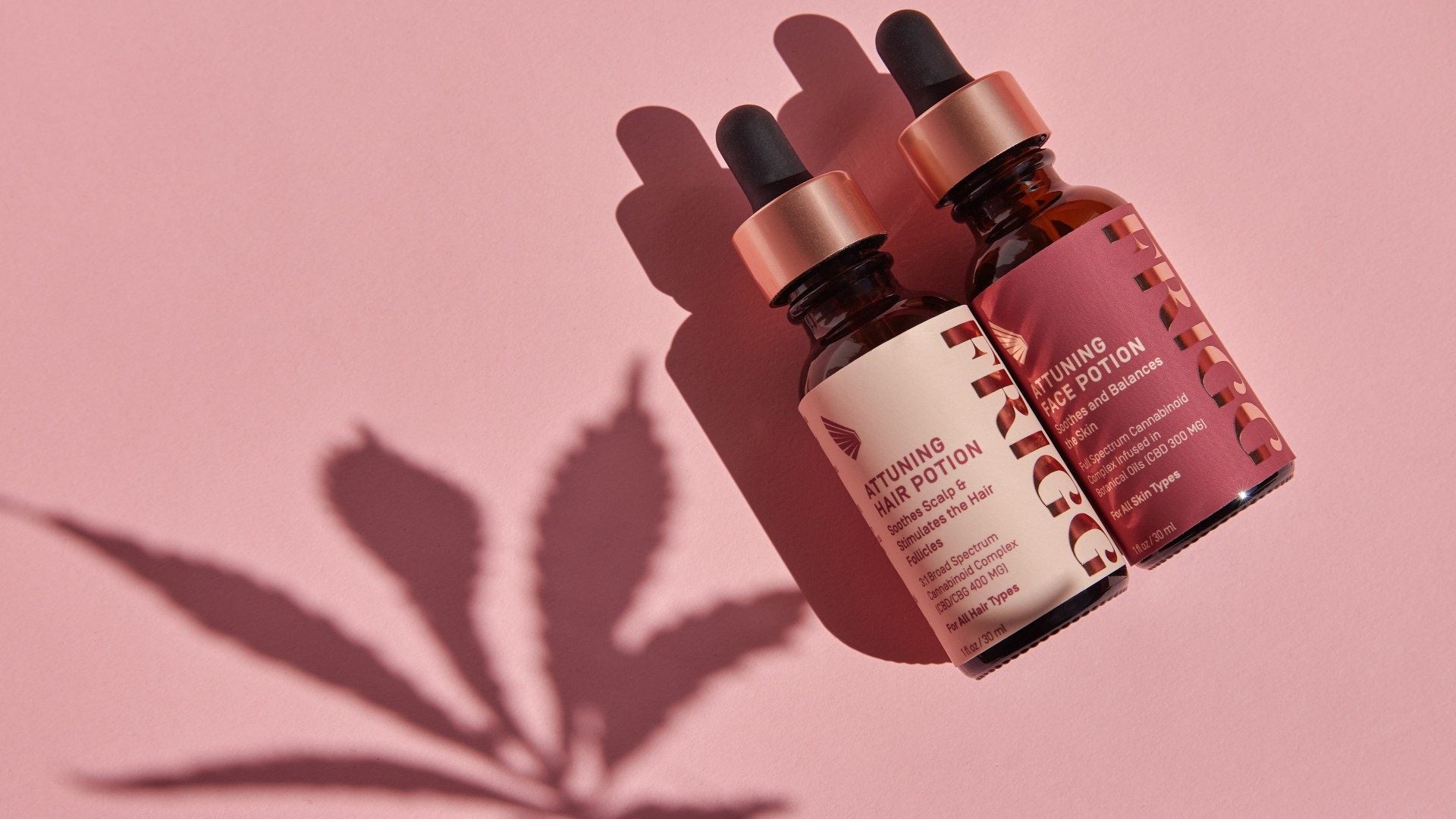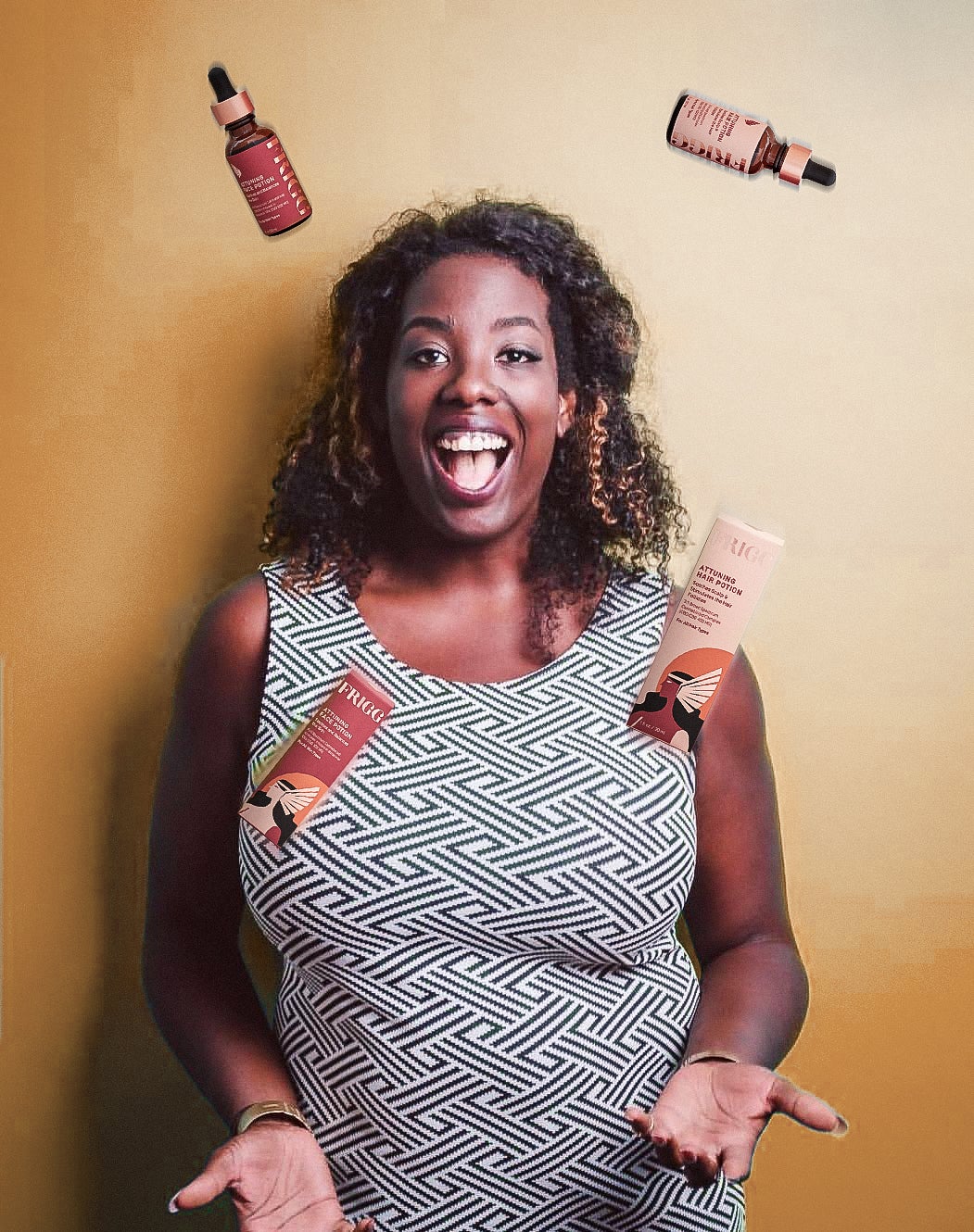
The Clean Beauty Summer School Program, an initiative designed to support the growth of Black-owned brands in the clean beauty industry, culminated on Wednesday, September 16, with a pitch competition.
The mentorship program, spearheaded by Tower 28 founder and CEO Amy Liu, kicked off in August, with weekly courses designed to educate and mentor a group of ten entrepreneurs—founders of Black-owned beauty brands with fewer than three employees. The initiative focused on clean and sustainable goods and included topics such as product development, manufacturing, digital marketing, financial planning, fundraising and pitching retailers, among others.
The courses, which were developed by a collective of female founders and brand experts in the beauty industry, were “so valuable,” according to Kimberly Dillon, Frigg founder and winner of the Clean Beauty Summer School Program pitch competition.
“These women were dropping real gems,” she says. She likens it to the type of advice you’d only get if you were someone’s niece or part of an alumni network. “Access matters,” she continues.

“It was amazing to hear directly from the top leaders in the field. We also talked a lot about what it meant to be a clean beauty brand.”
Dillon notes, products marketed to women of color contain “incredibly toxic” ingredients, and thinking how to show up as a business as far as sourcing ingredients goes, is important.
Dillon, who was awarded guaranteed meetings with both Sephora and Ulta Beauty buyers, a $10,000 grant from the New Voices Foundation, and $13,000 worth of services from HeadKount, a team of beauty professionals that scale and help companies achieve success, discussed future plans for her brand in an ESSENCE exclusive.
ESSENCE: What is the mission of your brand? Can you give us your elevator pitch?
Kimberly Dillon: Frigg is a wellness line that tackles the impact of stress on the hair and skin [by way of] cannabinoids like CBD and adaptogens like Ashwagandha. My mission is to normalize the use of cannabis and to make the plant more accessible to people of color.
Who is your target consumer?
She is the multicultural millennial who cares about people and the planet. She is juggling a lot and is plowing through, but wants to take care of herself naturally and sometimes a bit indulgently.
What new initiatives or innovations will your brand bring to the beauty market?
Our Attuning Hair Potion is unique because we used two cannabinoids, CBD and its cousin CBG, to soothe the scalp from irritation and inflammation and balance out oil production. The product is multifunctional and has a ton of uses as a stand-alone product. First, it relives pain from tight hairstyles like weaves. Second, it nourishes dry scalps and defends against flakes. Third, the combo of baobab and castor seed oils helps seal and smooth out dry hair and promote hair growth.
Our Beauty Rest Tea, a mixture of CBD and herbs like chamomile and calendula that promote a sense of calm and help promote a nice sense of sleep, was the first product to sell out.
How do you plan to use your brand to impact the Black community?
We are donating a portion of our revenues to organizations and tools that support mental well-being especially for people of color or [those] impacted by the war on drugs. We also serve as mentors to social equity applicants in the California cannabis market via the This Is Our Dream program. The legalization of cannabis is one of the biggest social justice issues of our time. I could not in good conscious talk about using CBD to get a healthy glow while there are many Black and Brown folk sitting in prison for doing a version of the same thing.
How will you use the grant from the New Voices Foundation to scale your business?
We will be investing in product development for our new SKUs and content creation to continue to tell the Frigg story.
Where do you see your brand in five years?
Leading the charge with tapping into the potential of functional plants to beautify people’s lives. We are still very much in the early stages of working with a number of these plants like cannabis and mushrooms and medicinal herbs. We want to be the brand bringing science ancestral wisdom while also actively supporting positive mental well-being and an outer glow.
How can large brands and retailers support Black-owned beauty brands as we move into the new year?
They can 1) give a shout-out or promote noncompetitive Black-owned brands that would appeal to your audience on IG, or better yet, through e-mails; 2) hold office hours or mentoring workshops for brand founders; 3) help smaller brands identify quality suppliers and vendors that can work on lower minimums; 4) set clear goals about what success looks like for both parties; and 5) ensure inclusion across the whole value chain. It’s about building a holistic ecosystem and not just building vaporware.